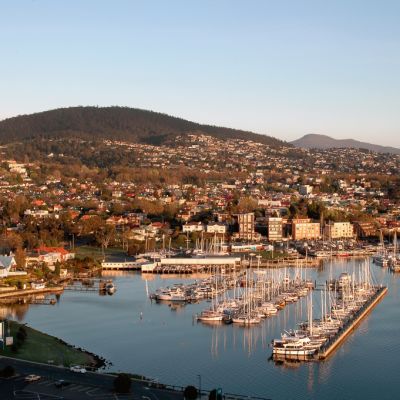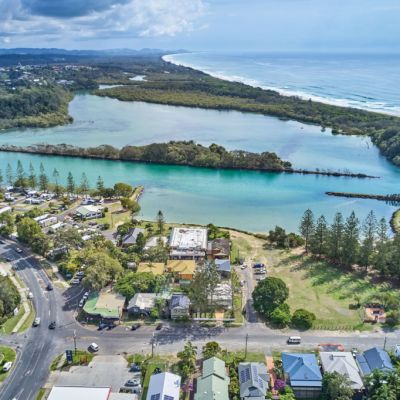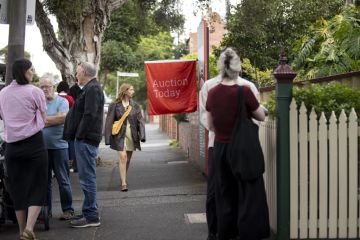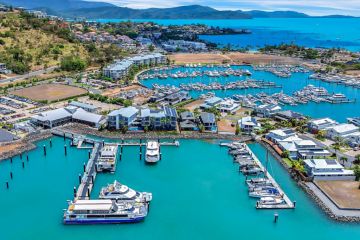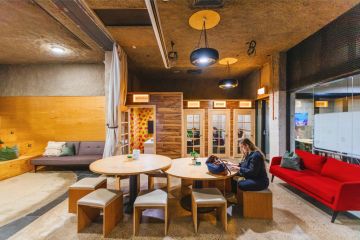'Hotel deals and house swaps': Returning to the office after a sea or tree change

Did you move to the coast or country during COVID-19, but kept your job in the city?
If so, the long commute may be about to bite, as more bosses demand their employees return to the office for at least a couple of days per week.
So, what’s a person to do – other than suck it up, or try to plead the case for continued remote working?
For many, the answer is a combination of long drives or train travel, broken up by nights spent crashing in family or friends’ spare rooms. Others are making the most of largely empty hotels or Airbnbs in the city to nab cheap last-minute deals.
Or in the case of Angus Smith, who moved from Melbourne to Barwon Heads earlier this year, catching the ferry back to the big smoke.
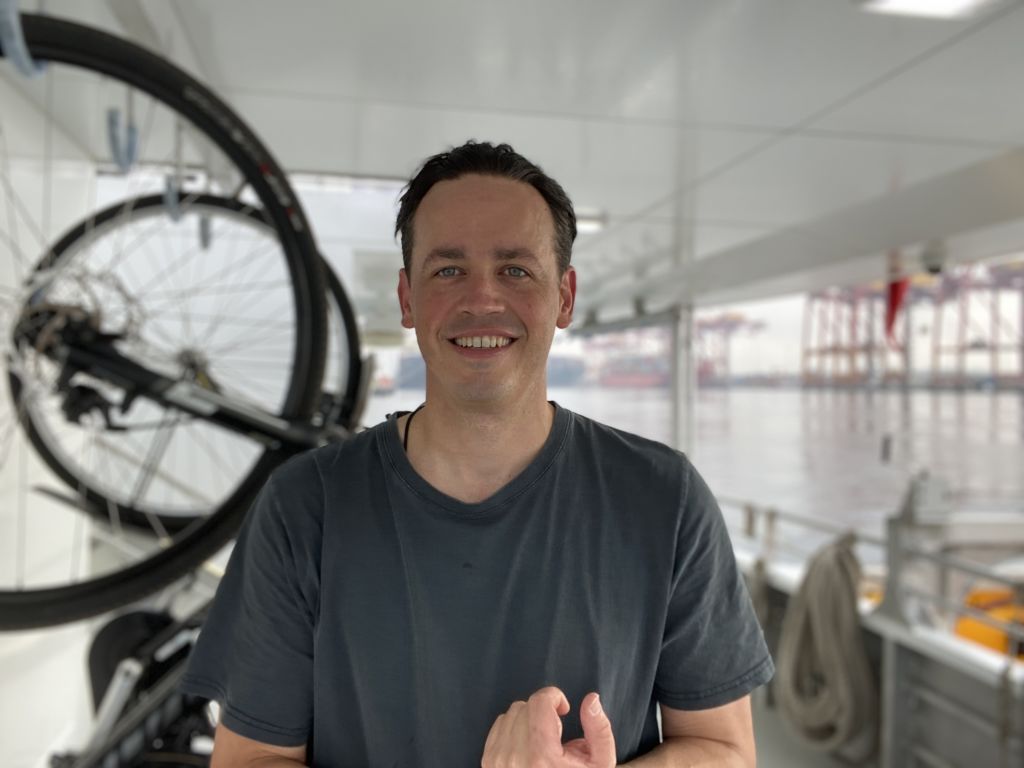
While he and his partner used to spend most weekends in the coastal town prior to COVID-19, the Melbourne lockdowns sealed the decision to make a full-time sea change.
“To be able to be locked out from friends, family and the surf beach was a bit much, and we thought we’re working remotely most of the time, so why not?”
Smith, who works at an international humanitarian organisation, now throws his bike in the car for the scenic drive to Portarlington about twice a week, and catches the 70-minute ferry to the Docklands ($33 return), before cycling the last part of his journey along the Yarra River.
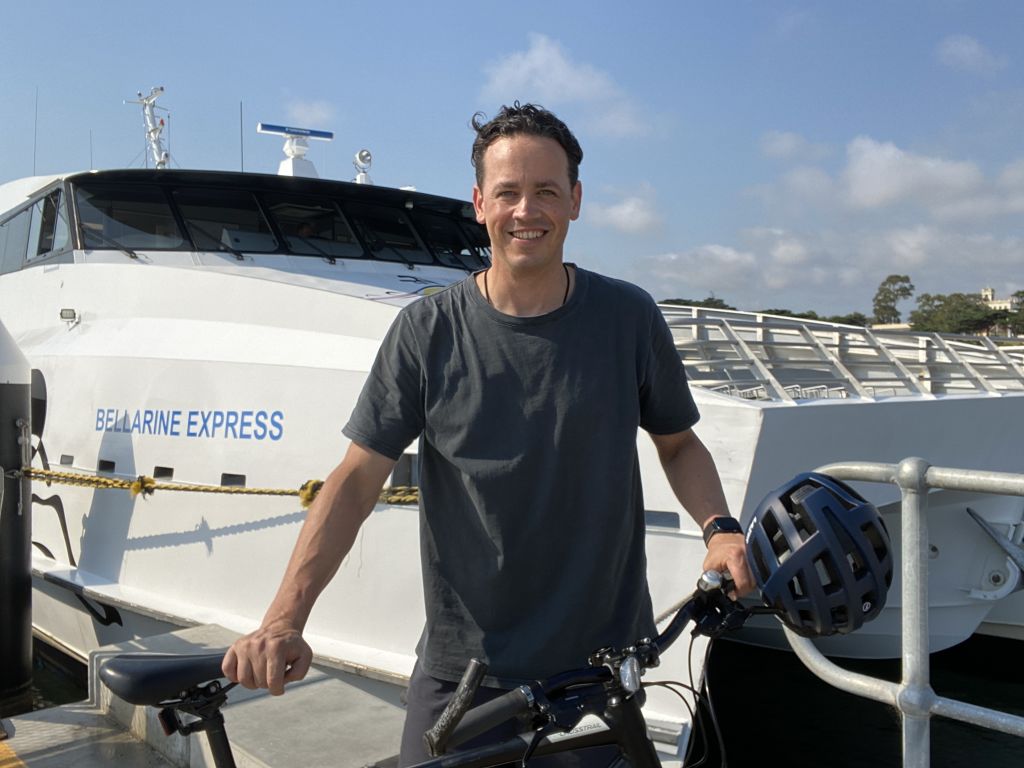
On the ferry ride in, he does some work, and on his return journey, enjoys a glass of wine.
“I thought it was going to be a horrible commute but it’s actually my favourite part of the day,” he says.
Many companies are taking a more flexible approach to working from home, or slowly easing employees back into office life. For example, this week the Victorian government announced a new flexible work policy that requires public servants to return to the office at least three days a week.
By law, employers can give directions to their employees to work their normal hours at their workplace (except if they’re on approved leave), according to a Fair Work Ombudsman spokesperson.
“An employee can’t refuse an employer’s direction to perform work if the direction is lawful and reasonable,” the spokesperson said.
Of course, when you work for yourself, there’s more opportunity to be flexible, even when many of your clients are still in the CBD.
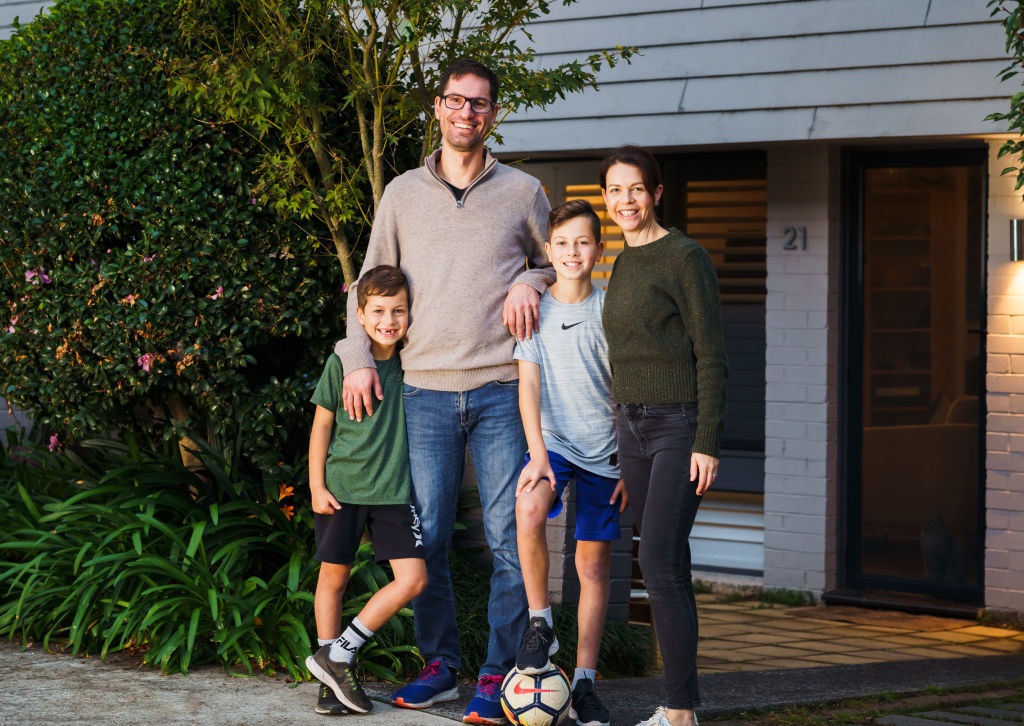
That’s the case for business communications specialist Amber Daines. Last December, she and her family rented out their place in Gladesville, nine kilometres from Sydney’s CBD, to move to Kariong on the Central Coast.
But their move wasn’t really about the beach lifestyle. Rather, Daines’ eldest son had secured a spot at a sought-after sports college.
“We kind of all went, well COVID lets us work more flexibly, do we give it a couple of years and see how it goes?” says Daines. “A year ago I wouldn’t have even thought about it.”
She usually stays in a hotel for one to two nights each fortnight to meet her city clients, while her husband commutes more frequently to his full-time job and often stays with a friend.
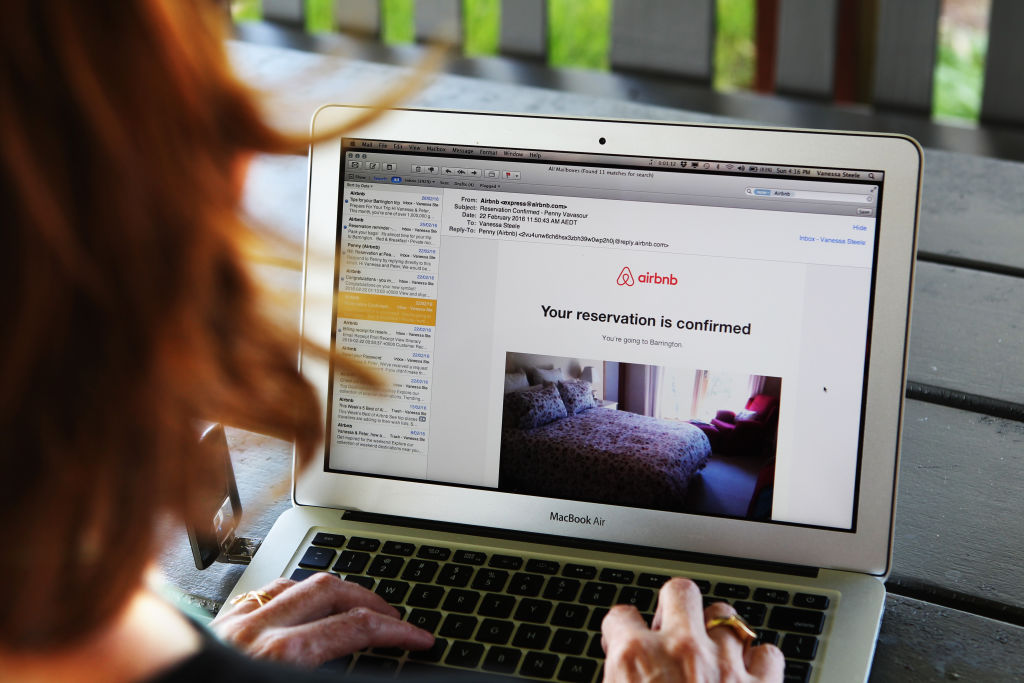
“There are a lot of good deals at the moment,” says Daines, who always books hotels that offer free cancellations, just in case clients change meeting times.
“During summer it was actually cheaper to stay in Sydney in a five-star hotel than to stay in an Airbnb on the Central Coast.”
Recently she stayed two nights for free, including parking, at a luxury hotel in Circular Quay, using points through American Express Travel.
Back in Victoria, sales manager and surfer Raphael Bieniara commutes to his Melbourne office two to three times a week, after moving from Elwood to Jan Juc last July. The drive takes about an hour and 20 minutes.
“I sometimes stay in Melbourne, so it’s a mix of both,” he says. “The commute I don’t mind, I’m listening to podcasts and I’m on the phone to customers.”
Bieniara says he has no regrets about the move – even with the much longer commute. “It was absolutely the right decision.”
How to find a cheap city crash pad
- Check hotel websites and apps directly for a better price
- Book a cheap private room on Airbnb
- Dust off your Frequent Flyer points for a hotel stay
- Find a youth hostel with barely any guests
- Sign up to loyalty programs. For example, hotels.com offers a free night for every 10 nights booked
- Try shopback.com.au for cheap deals and cash-back offers
- Do a room trade with your city friends.
We recommend
We thought you might like
States
Capital Cities
Capital Cities - Rentals
Popular Areas
Allhomes
More

